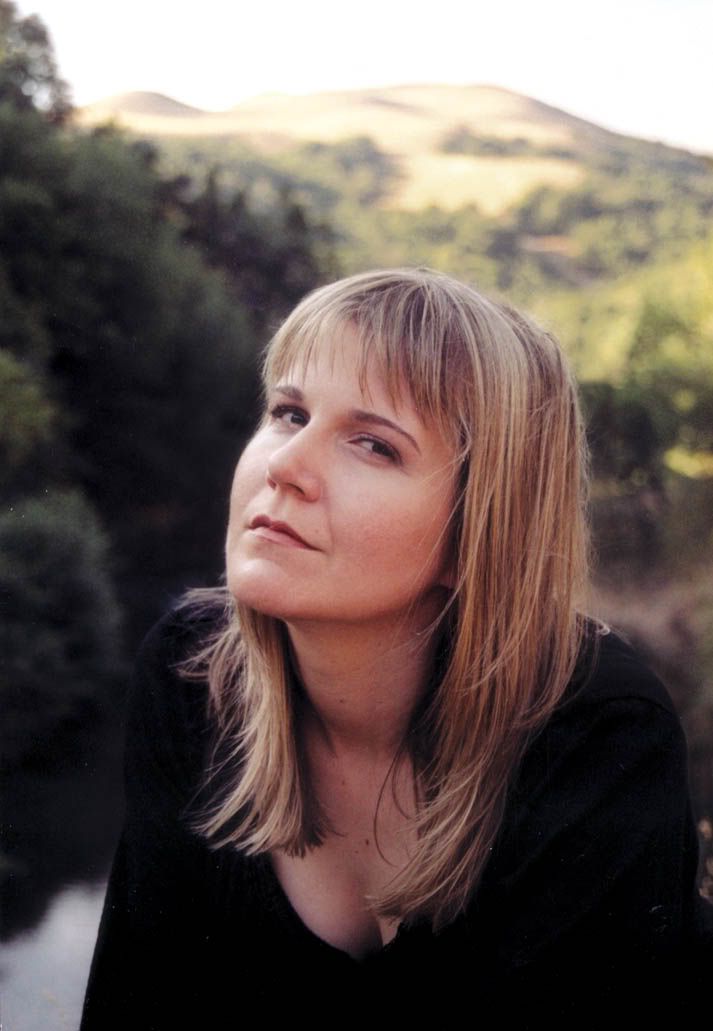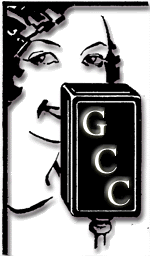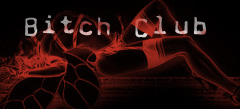At last here's my interview with the inimitable MJ Rose! MJ's novel, The Halo Effect, is currently in mass market paperback. I got to read an ARC of this novel and LOVED it! Now that it's out in mass release, I'm going to buy some copies for friends.
Here's MJ's press release:
NEW YORK, July 5 – M.J. Rose, nearly as well known in some circles for the wildly creative strategies she advocates to a growing audience on her marketing blog, "Buzz, Balls, and Hype", as she is for her feverishly paced thrillers, has come up with the perfect strategy to capture overwhelmed consumers' attention in an overloaded marketplace for her newest release THE HALO EFFECT (Mira Books; Mass Market Paperback, July 2005).
The two-week "blog-a-thon" for the Anthony Award-nominated novel aims to connect book lovers with a good cause and a great summer read.
On July 5th, coinciding with the release of THE HALO EFFECT, Mira Books has teamed up with "VidLit" to produce a short film that uses animation and the latest in digitial multimedia illuminate the world within the novel. Rose has secured pledges from real-life supporters - her publisher, agent, family and friends – who will collectively donate $5 to the nonprofit literacy organization, Reading Is Fundamental, for each website or blog that links to Rose's THE HALO EFFECT VidLit before July 19.
Rose's goal is to get 500 blogs to link to the VidLit and raise $2500+ for the charity.
THE HALO EFFECT is the first book in the Butterfield Institute series, featuring sex therapist, Dr. Morgan Snow. In each book she struggles with the conflict of preserving her patient's privacy and the dangerous and sometimes criminal things she hears. She sees everything from the abused to the depraved, from the couples grappling with sexual boredom to twisted sociopaths with dark, erotic fetishes and the Butterfield institute is the sanctuary where she helps soothe and heal these battered souls.
Praise for THE HALO EFFECT:
"Potentially explosive… Rose's latest is not for the squeamish... [Dr. Morgan Snow] is an engaging guide to the world of dysfunction that Rose painstakingly constructs." –Publisher's Weekly
"The Halo Effect is tense, engrossing, and sometimes so real it's frightening."
- Linda Richards, editor of January Magazine
"Dr. Morgan Snow is a refreshingly vulnerable character whose spunky decision to go undercover in the demimonde is both believable and hair-raising. THE HALO EFFECT will have you on the edge of your seat from page one"
-Katherine Neville, New York Times bestselling author of The Eight
About M.J. Rose:
M.J. Rose, is the author of five novels, Lip Service, In Fidelity, Flesh Tones, Sheet Music and The Halo Effect. She also is a contributor to Poets and Writers, Oprah Magazine, The Writer Magazine, Pages Magazine. Her short fiction has appeared in Pages Magazine, The Vestal Review and several anthologies including Best American Erotica and The Auntie's Book. Rose is also the co-author with Angela Adair Hoy of How to Publish and Promote Online, and with Doug Clegg of Buzz Your Book. With a background in advertising (She was the Creative Director of Rosenfeld Sirowitz and Lawson and she has a commercial in the Museum of Modern Art), Rose used her business smarts and entrepreneurial acumen to become what Time magazine would call the "poster girl" of e-publishing. Signed to a major New York publishing house in 1999, Rose has gone on to help other authors creatively market their work through both of her popular and well-read blogs, Buzz, Balls & Hype and Backstory.
What's left? Watch the VidLit!
THE HALO EFFECT BY M.J. ROSE, AT VIDLIT:
Link: http://www.vidlit.com/mj/
Other resources:
Buzz, Balls & Hype:
http://www.publishersmarketplace.com/members/BkDoctorSin/
Backstory:
http://mjroseblog.typepad.com/backstory/
http://www.MJRose.com
About VidLit:
VidLit celebrates storytelling in a new and entertaining way. Noted for their impact on book promotion as "a new way to reach online readers" by Wired magazine (online: http://www.wired.com/news/culture/0,1284,67076,00.html), VidLitfilms are changing the way that audiences see books. For more information, visit http://www.vidlit.com.
I caught up with MJ for an interview. I think you'll learn a lot about writing, publishing, and promoting by reading MJ's answers to my questions. Welcome to the blog, MJ!
MJR: Thanks for having me.
MO'C: You take risks with subject matter and theme, to put it mildly! About
The Halo Effect, Publishers Weekly says: "The mutilated body of a prostitute in a nun's habit, her pubic hair shaved into a cross, appears on page one of this suspense thriller, making it plain that Rose's latest (after
Sheet Music) is not for the squeamish. " Did you take any flack for such an edgy opening and did you experience any trepidation when writing it?
MJR: I haven't gotten any flack for the violence. And I didn't have much choice about writing it. It was in my head that way, demanding, I guess I'd say, that it be told like that.
But I have gotten a lot of flack -- surprisingly to me -- for creating a therapist (she's a main character) who has serious conflicts and real problems in her own life.
Readers and reviewers have actually questioned if anyone with Dr. Morgan Snow's troubles would be allowed to be a therapist.
It makes me want to laugh - that anyone would think therapists are beyond human nature and immune to problems. And it annoys me that anyone would think I'd would write a character as complicated as Morgan without doing my homework. (I have two to four therapists I work with on any given book and the each book is vetted by them. )
MO'C: I have to ask about the butterflies because they're a motif in my novel as well. What do butterflies mean to YOU and how do they work in the book? Why did you choose to use them as a symbol?
MJR: I know this is going to sound crazy, but Morgan chose them. I spend about six weeks to three months walking around with my main character, seeing the world through her eyes, making a scrap book of her life, collecting bits and pieces that make her whole in my head.
So one day I was walking around New York City, with Morgan, and I (we) were in Soho and there was a store that had hundreds of butterflies, each in its own Plexiglas container in the window. I stopped and I knew - these fabulous insects had something do with Morgan.
Of course there was the obvious metaphor of the stages of metamorphosis that a butterfly goes through which corresponds to the stages someone in therapy might go through.
But after doing some research, I found out other facts that proved just how perfect the metaphor was. For instance, in ancient Greece the word for psyche and the word for butterfly were the same as well as being is the basis of the word psychology.
And do you know about the sexual life of butterflies?
Once I found out some mate for 16 hours at a time - that settled it.
MO'C: You were originally self-published. E-published, if I'm correct. How did that come about and how did the transition to e-publishing to traditional publishing happen for you?
MJR: Getting published was an adventure. I self-published my first novel
Lip Service late in 1998 after several traditional publishers turned it down. Editors had loved it, but didn't know how to position it or market it since it didn't fit into any one genre. Too commercial to be literary, too literary to be commercial. Too erotic not to be erotica but not erotic enough to really be erotica. A little bit suspenseful, but not enough of a mystery to call it a mystery ... you get the idea. Frustrated, but curious and convinced that there was a readership for the book despite it not being easy to classify, I set up a web site where readers could download the book for $9.95 and began to seriously market the novel on the Internet.
After selling over 2500 copies (in both electronic and trade paper format)
Lip Service became the first e-book and the first self-published novel chosen by the LiteraryGuild/Doubleday Book Club as well as being the first e-book to go on to be published by a mainstream New York publishing house.
MO'C: Do you recommend that writers who've "struck out" with traditional publishers try self-publishing? Why or why not and if the answer's yes, do you have any services you think are better than any others?
MJR: Self-publishing has been around for hundreds of years and has not done harm to literature. There will always be a few authors who deserve to be published that get passed over for one reason or another, yet who believe in their work enough to persist and publish it themselves. Mark Twain, D.H. Lawrence, e.e.cummings are among the hundreds of authors who have self-published their books at one time or another.
On the other hand, I do think the Internet has become flooded with self-published books which can overwhelm readers. Daily it becomes harder and harder for any of them will be discovered. It's just too much for anyone to wade through in the hopes of finding one of those hidden gems.
So I believe self-publishing should be a last resort. I think authors should try to get agents and get published traditionally. They need editors to help them grow and improve. Self-publishing is very arduous and very speculative and a difficult journey.
MO'C: How much of your fiction do you draw from life? Can you give any examples?
MJR: Not very much in one way. A lot in another.
Specifically, I write about the subjects that interest me.
I studied to be a painter in college and am still very involved in the art world. I also went back to school (in my 30's) to be therapist. I've lived in New York City or Connecticut most of my life.
So those subjects and places do show up in my fiction.
I think untimely; I am my books in the way that matters. I don't look like my characters, I have not lived their traumas, I don't act the way they act, but the themes the book address are issues in my life - even if only intellectually. The questions the books ask are the questions I ask myself.
MO'C: Successful suspense plotting can be a challenge. Do you outline your books? What are some tips you might have for creating effective suspense?
MJR: Thanks for suggesting that the books are indeed suspenseful.
Yes, I do have an outline. A 20-point outline that just helps me understand the landscape of the book. For me, to write suspense I have to know the end before I even start to write the first word. It's like a journey. I need to know where I'm beginning and where I'm going to wind up. But I'm willing to get lost on my way there.
As for tips, I don't think I have any. But if you hear of any could you let me know what they are, I'd love some help.
MO'C: I'd like to hear a bit how your very successful blog, Buzz, Balls, and Hype, (linked on the right in my blogroll!) came to be. What are some ways in which blogging has helped your literary career?
MJR: As a reporter, I had a three-year gig covering publishing for Wired.com and got to understand the ins and outs of every aspect of the business. Around the same time I stared hanging out at an online forum called Readerville.com where I wound up spending a lot of time answering questions about things related to publishing and buzz.
Then blogs started up. I didn't have one. But Michael Cader over at Publisher's Marketplace had an idea for offering blogs within his site and asked me if I wanted to be his first blogger and beta test his system.
I said sure. And then forgot about it for a while until I got an email one night telling me he was ready for the blog and could I get it up two days later?
Sure, I said again. Except I had no idea what to blog about. I only knew I didn't want to do: I didn't want to blog about myself, because I think I'm boring, and I didn't want to have a blog that just aggregated news.
I was also suddenly worried about where I'd find the time to blog.
I was writing my novels all day, every day. And in my spare time, I was posting at Readerville. Where was I going to find the time to blog, too?
That was when I realized I should blog the stuff I posted about at Readerville: opinions on and analysis of marketing and promotion as well as how authors can become more empowered and what we need to understand about publishing.
As for how it's impacted my fiction, I know there have been readers of the blog who've read my fiction who never would have been exposed it otherwise.
MO'C: About authors blogging, Ayelet Waldman recently said: "Don't, don't start; it'll suck you into the screaming vortex of the blogosphere, and then you will never get out... One of the things that you do as a fiction writer is you sort of take the experiences of your life and your memories and you kind of wait for them to gel into something and transform into something that you then write about in a very different way. And when you have this new medium of the web, there's no gel time -- it's just all liquid." Have you experienced any downsides to blogging?
MJR: I haven't had Ayelet's experience at all which is probably because I have never used my personal life as material for my blog and I don't ever plan to.
It's just not what I'm interested in putting out there.
If I had to explain it, I'd say:
My novels are deeply rooted in the questions I personally have about emotions, philosophy, and psychology.
My blog is rooted in my experience as both a creative director of a NY ad agency and a reporter covering publishing. The blog gives me a forum to brainstorm, raises issues authors have with publishing and play around with some crazy ideas.
The only downside, is that there is some sense of responsibly now that the blog is doing well and if I ignore it for too many days I start to feel guilty.
MO'C: Can you talk a bit about authors self-promoting?
MJR: There are 125,000 books published a year. (195,000 if you count self published) There are 10,000 novels published a year. (25,000 if you include self published.) Let's just focus on fiction.
That's up from 6000 in 1998 but readership is down since then. And the price of books has gone up.
There are almost 300 novels published a week. Review sources are down 20% -50% across the board. Only 500 novels a year get any serious review attention a year - that's less than 5%. And then readers say they don't care about reviews anyway. There is no real advertising for 90% of the books published.
So what's left. Table placement for books in bookstores? Yes, but the reader has to want to pick up the book on the table. The only thing that makes them do that is word of mouth or attractive covers. And only one of those is something the author can do something about.
The way I explain it is this: If you don't get involved and become a marketing partner with your publisher, if you don't get online engage with readers, if you don't go into every bookstore you can and make nice with the booksellers, when you book fails you have no idea if you would have made a difference. If you do all the right things and the book still fails to find an audience, you can never blame yourself. Knowing you did your best will make a difference. And I find that in general, authors who get involved the right way, do help their sales.
Unfortunately most of us are writers because we love being home, in our robes, or sweats, not talking to people, living in worlds of our own creation to the exclusion of the real world out there. So getting out and promoting can often seem like the most impossible job. It's counter to everything we are.
It helps to have a split personality if you want to be a successful author. Or have a twin who loves to socialize.
And that's why tours like this one online are so important. The web really does allow writers to connect to readers. Hopefully, something like this tour will encourage readers to take a chance on my book - to pick it up if they see it - to go to my website and read an excerpt.
Writers too have to make a huge effort to support other writers and buy each other's books. It's a known statistic that writers who read and buy other writers' books have more successful careers and get published sooner.
I also teach a
marketing/PR class. It's one on one, six weeks every other month. (The next one
starts in September.) The class empowers authors to come up with ideas they can implement themselves to promote their books. Creative, out of the box ideas. One of my students got her publisher to increase her print run by 300% based on her idea. Another student created a pr event that attracted so much press she got a movie deal.
MO'C: Thanks again all the great information, MJ! I'm sure my readers learned a lot.
MJR: You're welcome.
You can buy MJ's book at online retailers like
Amazon or
Barnes and Noble, at your local
indie bookseller, or wherever books are sold.










